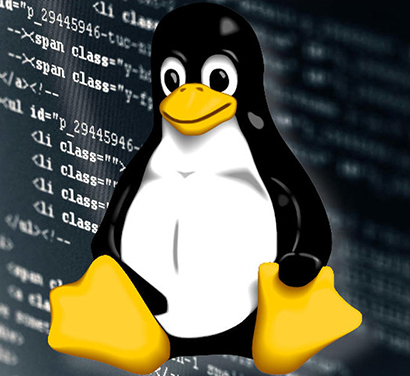Linux is the number ONE operating system for the Corporate world. If you want to start your career in Linux and have little or no knowledge of Linux then I can help. In this course you will learn Linux installation, configuration, administration, troubleshooting, command line, OS tools and much more... I have also included Resume and Interview workshop that will definitely help you get your dream IT job. In addition to the lectures there will be quizzes, homework and hand-out material just like a live classroom training
Linux
What you'll learn
- By the end of this course you will be a professional Linux administrator and be able to apply for Linux jobs
- You will be able to take the EX-200 exam and become Redhat Certified System Administrator (RHCSA - EX200)
- You will learn 150+ Linux system administration commands
- You will gain advance Linux systems administration skills and have deep understanding of Linux fundamentals and concepts
- You will be able to troubleshoot everyday Linux related issues
- You will manage Linux servers in a corporate environment
- You will write basic to advance level shell scripts
Following is the list of topics I will cover in this course:
Module 1 – Understanding Linux Concepts
- What is Linux?
- Everyday use of Linux
- Unix vs. Linux
- Quiz, Homework and Handouts
Module 2 – Download, Install and Configure
- What is Oracle Virtual Box?
- Downloading and Installing Oracle Virtual Box
- Creating virtual machine
- Linux Distributions
- Different way to install Linux
- Downloading and Installing Linux (CentOS)
- Redhat Linux installation (Optional)
- Linux Desktop (GUI)
- Virtual Machine Management
- Linux vs. Windows
- Who Uses Linux?
- Quiz, Homework and Handouts
Module 3 – System Access and File System
- Accessing Linux system
- Download and install Putty
- Connect Linux VM via Putty
- Important Things to Remember in Linux
- Introduction to File System
- File system structure description
- File system navigation commands
- File System Paths
- Directory listing overview
- Creating Files and Directories
- Finding Files and Directories (find, locate)
- Changing Password
- Wildcard (*, $, ^)
- Combining and Splitting Files (cat and cut)
- Soft and Hard Links (ln)
- Quiz, Homework and Handouts
Module 4 – Linux Fundamentals
- Commands Syntax
- File Permissions (chmod)
- File Ownership (chown, chgrp)
- Getting Help (man, whatis etc.)
- TAB completion and up arrow keys
- Adding text to file
- Pipes ( | )
- File Maintenance Commands
- File Display Commands
- Filters / Text Processing Commands (cut, sort, grep, awk, uniq, wc)
- Compare Files (diff, cmp)
- Compress and Un-compress files/directories (tar, gzip, gunzip)
- Combining and Splitting Files
- Linux vs. Windows Commands
- Quiz, Homework and Handouts
Module 5 – System Administration
- Linux File Editors (vi text editor)
- sed Command
- User account management
- Switch users and Sudo access
- Monitor users
- Talking to users (users, wall, write)
- Linux Directory Service - Account Authentication
- Difference between Active Directory, LDAP, IDM, WinBIND, OpenLDAP etc.
- System utility commands (date, uptime, hostname, which, cal, bc etc.)
- Processes and schedules (systemctl, ps, top, kill, crontab and at)
- Process Management
- System Monitoring Commands (top, df, dmesg, iostat 1, netstat, free etc.)
- OS Maintenance Commands (shutdown, reboot, halt, init etc.)
- Changing System Hostname (hostnamectl)
- Finding System Information (uname, cat /etc/redhat-release, cat /etc/*rel*, dmidecode)
- System Architecture (arch)
- Terminal control keys
- Terminal Commands (clear, exit, script)
- Recover root Password (single user mode)
- SOS Report
- Quiz, Homework and Handouts
Module 6 – Shell Scripting
- Linux Kernel
- What is a Shell?
- Types of Shells
- Shell scripting
- Basic Shell scripts
- If-then scripts
- For loop scripts
- do-while scripts
- Case statement scripts
- Aliases
- Shell History
- Command history
Module 7 – Networking, Servers and System Updates
- Enabling internet in Linux VM
- Network Components
- Network files and commands (ping, ifconfig, netstat, tcpdump, networking config files)
- NIC Information (ethtool)
- NIC or Port Bonding
- Downloading Files or Apps (wget)
- curl and ping Commands
- File Transfer Commands
- System updates and repositories (rpm and yum)
- System Upgrade/Patch Management
- Create Local Repository from CD/DVD
- Advance Package Management
- SSH and Telnet
- DNS
- Hostname and IP Lookup (nslookup and dig)
- NTP c
- hronyd (Newer version of NTP)
- Sendmail
- Apache Web Server (http)
- Central Logger (rsyslogd)
- Securing Linux Machine (OS Hardening)
- OpenLDAP Installation
- Quiz, Homework and Handouts
Module 8 – Disk Management and Run Levels
- System run levels
- Linux Boot Process
- Message of the Day
- Disk partition (df, fdisk, etc.)
- Storage
- Logical Volume Management (LVM)
- LVM Configuration during Installation
- Add Disk and Create Standard Partition
- Add Disk and Create LVM Partition
- LVM Configuration during Installation
- Add Virtual Disk and Create New LVM Partition (pvcreate, vgcreate, lvcreate,)
- Extend Disk using LVM
- Adding Swap Space
- RAID
- Quiz, Homework and Handouts
Module 9 – All About Resume
- Resume workshop
- Cover Letter
- Linux job description or duties
- Exposure to Other Technologies
- Homework and Handouts
Module 10 – All About Interview
- IT Components
- IT Job Statistics
- Linus Around Us
- Linux Operating System Jobs
- IT Management Jobs
- Post Resume and What to Expect
- Interview workshop
- Redhat Certifications (RHCSA, RHCE etc.)
- Join Linux Community
- 200+ interview questions
- Homework




